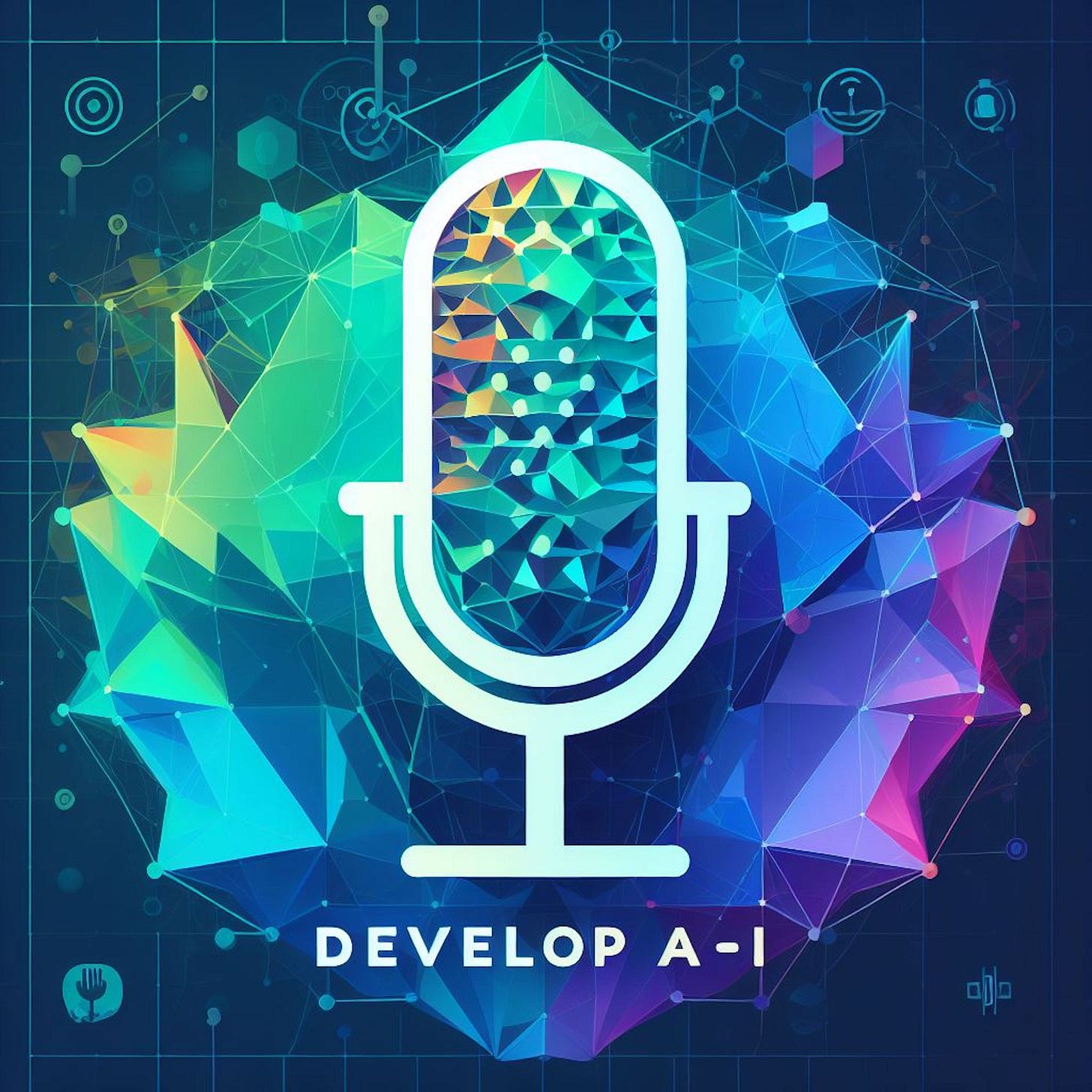Zimbabwe has built an AI newsreader, but she isn't coming for your job
PLUS Develop AI launches a completely synthetic podcast.
It was back in 2018 that China’s state-run Xinhua News Agency launched what they claimed (at the time) to be the world’s first AI news anchor. The dubious mouth movements and monotonous voice were heavily criticised at the time (coupled with a growing rumble of paranoia around what this could mean for job security in the media).

Spin forward to 2023 and we have Alice, produced by the Bulawayo-based Centre for Innovation and Technology (CITE) which lit up the second day of the “Empowering African AI” conference this week.
Alice has her own account on X where she posts news bulletins that are performed in a classic newsreader’s voice.
“AI is a tool that is controlled by a human being. This is why I don’t believe that AI is an immediate threat to journalists,” said Director of CITE, Zenzele Ndebele from his podium at the conference. “AI will not take jobs from journalists at CITE. AI cannot go out and gather news, but AI can complement the work that we are doing.”
He said CITE spent US$10 ,000 this year conducting research and figuring out how to use AI. And he also stressed that junior journalists are already using AI in secret to do their jobs more efficiently.
Associate Professor Mphathisi Ndlovu of the National University of Science and Technology (NUST) touched on how Alice struggles with pronouncing certain African words and that this highlights a growing need to address synthetic African language development. To be honest, whoever cracks this language issue in Africa will have a very prosperous start-up on their hands.
Even before I found out about CITE’s AI progress, their newsletter Asakhe Daily guided me through the recent Zim election. They are worth following.
This week’s AI tool for journalists to use…
The market in transcribing is being slowly cornered by Descript, which is positioning itself as an all-round editing tool for audio and video, but minute taking is another beast. Fireflies.ai doesn’t just transcribe your Zoom conversations, but compiles pretty competent summaries and sends them out to everyone who was on the call. It really works, but the paid version needs to be cheaper.
Coding Corner (the gradual process of a journalist learning how to code)
After writing last week’s letter on using AI tools for podcast creation, I dug out the code for my podcast app (produced in Colab) and updated a few things. The new model for ChatGPT is gpt-4-0613 so I needed to update the parts that access the OpenAI API and this resulted in considerably better responses from the hosts and more natural banter between them.
I also thought that instead of it scraping for the day’s news in Johannesburg a better way to showcase what the app is doing is to turn it in on itself. So, I gave the user the option to input a URL (as a basis for the podcast episode) and then fed it our own Develop AI newsletter. Writing that sentence makes feels like the project is the height of self-indulgence, but hopefully if people can see exactly what the app is working with as a starting point then we can chart its progress. The only rule is all mistakes (and tangents) produced by the AI are kept in deliberately. I’ll be documenting any changes I make to the code in this letter as we go along.
You can listen to the podcast (simply called Develop AI) here. The hosts are called Amina, Will and Khaya… if you have heard my voice before you’ll probably recognise the Will host, but I didn’t record a word for the show (I just fed it old voice over from my podcast Alibi). New episodes are released on Thursday and it’s also on Spotify.
Discover more on our coding blog.

What AI was used in creating this newsletter?
No text help, but the main image was produced by Bing. Same with the podcast cover art above (and naturally the podcast itself).
In the news…
Google has backed 11 start-ups to work on AI in Africa. These start-ups (from Ghana, Nigeria, South Africa, Senegal and others) are using AI to solve big challenges, from improving healthcare to boosting the economy. There are definitely interesting projects here, particularly for small businesses, but weirdly nothing strictly from the media sector.
Big media companies are gradually releasing their editorial stances on AI. The latest is an insightful take from Deutsche Welle. In this article Editor-in-Chief Manuela Kasper Claridge is firm that journalists will stay in control, but that they are already using tools to analyse large data sets. However, she came down hard on chatbots. She said, “They can provide inspiration but not reliable information. They make mistakes and are not transparent about where they draw their information. We will not use AI chatbots directly as sources.”
What’s new at Develop AI? We are going to Namibia to help innovators discover their potential!
I am heading to Windhoek the week after next to assist teams from Namibia, Zambia, Malawi, Zimbabwe, Botswana and Lesotho so they can produce AI products for their newsrooms. It is being put together by DW Akademie and I am absolutely honoured to be a part of it. This really is the lifeblood of what needs to happen in African media with these new technologies. Look out for the innovators from these countries (and their products) being featured in this newsletter in the future.
In the meantime, there is still time to sign up for Jamfest - it is free and will run from the 16th of October to the 19th of October next week in Johannesburg. I’ll be on a panel about AI-driven journalism on the Tuesday.
See you next week. All the best,
Join our WhatsApp Community here, visit our website, or contact us on X, Threads, LinkedIn or Instagram. Physically we are based in Cape Town, South Africa.




